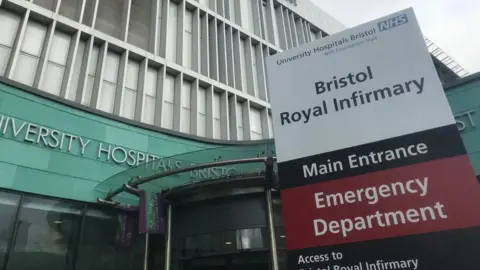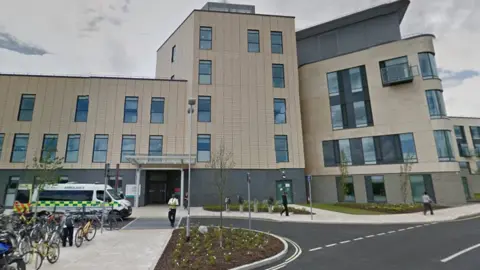Covid: Hospitals declare critical incident as cases rise
 BBC
BBCHospitals in Bristol and Bath have declared a "critical incident" amid rising levels of Covid-19 infections.
The Bristol Royal Infirmary, Southmead, Weston General and Bath's Royal United Hospital have declared alerts.
Declaring a "critical incident" triggers extra support from other parts of the health and social care system.
It means the NHS in Bristol, South Gloucestershire, North Somerset and Bath can get extra help and draft staff in from other duties.
The alert also includes the Bristol Children's Hospital and St Michael's maternity hospital.
Weston General, in Weston-super-Mare, Somerset, is run by University Hospitals Bristol and Weston NHS Foundation Trust, and is also covered by the alert.
 Google
GoogleA statement from the local NHS Clinical Commissioning Group said: "Both acute trusts in our area declared internal critical incidents across the new year bank holiday weekend.
"This meant they were able to open up extra beds and ward space, as well as request additional staff.
"Like other areas of the country, many staff across health and care are either unwell with Covid-19 or isolating. This means our sickness rates are higher than normal."
Cara Charles-Barks, the chief executive of Royal United Hospitals Bath said it had been a "difficult start" to 2022.
The incident there had been caused by "ongoing pressures" with sickness among staff and availability of beds.
Allow X content?
'Peak in infections'
In Bristol nearly 1,500 in every 100,000 people are infected, while the figures for North Somerset stand at just over 1,000 and South Gloucestershire around 1,200.
The city's public health director said Bristol was weeks away from a peak in infections, according to the Local Democracy Reporting Service.
Christina Gray said: "Those are extremely high rates. In Bristol we've had almost 7,000 positive cases in the past seven days.
"What we are seeing reflects what was seen in London - high rates but less severe harms.
"There's certainly been a decoupling of the rate compared to hospitalisation and severe illness. We've absolutely seen that."
She added the main reasons behind that were vaccinations and changes in behaviour.
"If predictions are correct we aren't yet at the peak and won't be for two to three weeks," she added.
"We're going to have to brace for three to four weeks before we're up and out of this."

Follow BBC West on Facebook, Twitter and Instagram. Send your story ideas to: [email protected]
